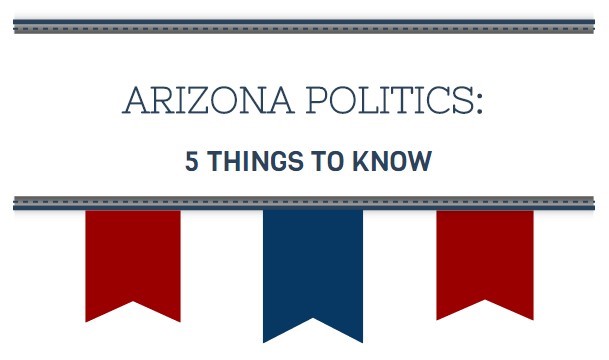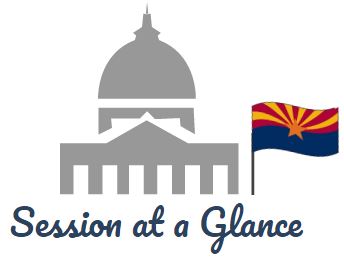March 06,2018 | Triadvocates

1. Still recovering from the recent scandal that resulted in the expulsion of one of its members, this week, legislative leaders announced a new bipartisan panel to create a first-of-its-kind Code of Conduct. It’s not clear what subjects will be addressed, but we expect them to focus on sexual harassment, improper relationships between elected officials and staff, and alcohol at the Capitol, among other subjects. While the Legislature has limited authority to strictly enforce most traditional workplace rules, because of the potential negative press, we anticipate the new code will likely be followed.
2. Last Tuesday, former state Sen. Debbie Lesko overwhelmingly won the Republican nomination in Arizona’s 8th Congressional District to replace former U.S. Rep. Trent Franks. Lesko emerged from a crowded 12-person GOP primary field, despite allegations of campaign finance violations. Given her years representing a large portion of CD8 at the state Legislature as well as her reputation for taking on high-profile legislation, such as pension reform for police and firefighters, TPT reform and the universal expansion of school vouchers, she was a favored candidate. Lesko will now face Democrat Hiral Tiperneni, an ER doctor, in the special general election on April 24. The winner will head to D.C. for the remainder of the term—at least until the next general election (yes, the winner will still have to continue the campaign efforts to secure the seat in the November general election). CD8 is a heavy Republican district, so Lesko better start packing to make weekly trips to our nation’s capital.
3. Last week, Gov. Doug Ducey signed two executive orders—one of which is a “2.0” order on Autonomous Vehicles, which defines various relevant terms and establishes some broad framework for testing in Arizona (for more info, click here). The other creates a cybersecurity group tasked with advising the governor on cyber policy. The 22-member committee will include state Chief Information Officer Morgan Reed and state Chief Information Security Officer Mike Lettman, in addition to other experts from the state government and private sector. The team will be tasked with finding federal resources to fight cybersecurity threats, driving workforce development in the IT field, figuring out how to collaborate among all government and private sector stakeholders, and making Arizona a national leader on the issue. Gov. Ducey has not yet appointed co-chairs for the cybersecurity team, but is expected to name them as early as this week (for more info, click here).
4. According to a recent poll, David Garcia – an ASU professor, education advocate and the 2014 Democratic candidate for State Superintendent of Public Instruction – has a slight edge over state Senator and current Senate minority leader Steve Farley in the Democratic primary race for Governor. The poll was conducted by Lake Research Partners, a Democratic-leaning company, and paid for by Arizona Wins, a Democratic coalition that includes union groups. However, both Garcia and Farley have an uphill battle to beat incumbent Gov. Doug Ducey. Ducey has stronger name recognition across the state, powerhouse fundraising capabilities, and still beats generic Democrats in polling. But if we’ve learned anything from the 2016 presidential election, it’s to never say never. Bring on election season.
5. Ask a lawmaker, staffer or lobbyist what they’re doing this summer and most will say “depends on when session ends.” While, according to chamber rules, the Legislature is technically supposed to wrap up its work within 100 days (a calendar date that usually lands about the time we must file our taxes), the session often extends long past that 100th day due to budget negotiations. However, that all could change if House Speaker JD Mesnard is successful in passing his bill, HCR2039, which would let the voters decide whether to modify the timeframe of the legislative session to 1) commence on the fourth Monday of January each year (instead of the second) and 2) adjourn Sine Die by the last Friday in April each year. Supporters of the idea say shorter, more predictable lengths would help citizen-lawmakers fit legislative service in with their other jobs and force legislators to be more focused on proposals they consider. Others have reservations about the concept, saying it could cause legislation to be rushed even more than is done now. The bill passed out of committee along party lines, but has been retained three times on the floor calendar—a sign that the sponsor doesn’t have the votes.


During debate on HB2479, which would reform the taxation of digital goods and services:
Rep. Vince Leach: “This is a good bill and provides much-needed clarity in the tax code. Is it perfect? No, of course not. But, let’s be honest, who among us has passed a perfect bill?”
30 hands go up…
